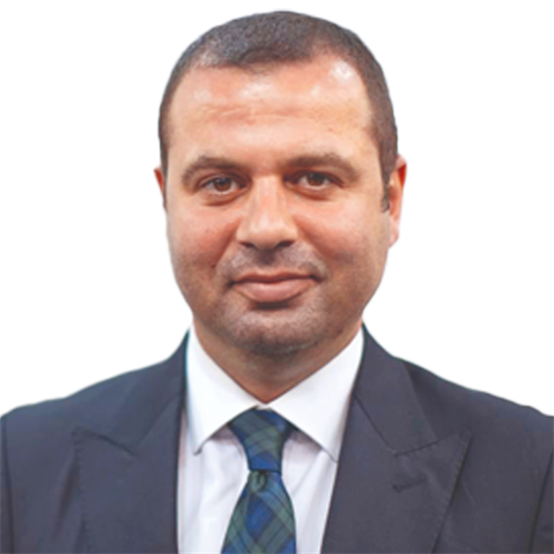
- 29.01.2025, Wednesday
- 01:43
How did we become a key player in that power struggle?
21:1422/08/2024, Perşembe
Next article
Yahya Bostan

Time is moving faster, and we can barely keep up. As we look back years from now, we may realize we overlooked key developments that marked turning points. One such moment is the intense power struggle unfolding in Africa among global powers. Türkiye has become a key player in this great struggle, especially through its critical moves over the past year. I'll explain how, but first, let's take a snapshot of the situation. THE ECONOMIST: ONE REASON IS TÜRKİYE In April, *The Economist* published an
Time is moving faster, and we can barely keep up. As we look back years from now, we may realize we overlooked key developments that marked turning points. One such moment is the intense power struggle unfolding in Africa among global powers. Türkiye has become a key player in this great struggle, especially through its critical moves over the past year. I'll explain how, but first, let's take a snapshot of the situation.
THE ECONOMIST: ONE REASON IS TÜRKİYE
In April, *The Economist* published an article on the diminishing influence of the United States in Africa. According to them, one of the three reasons for this development is the entry of middle-sized powers like Türkiye and the United Arab Emirates into the competition.
The observation of "America's declining influence" is not unfounded. Let’s see where these developments are heading:
Niger, one of the countries with the world’s largest uranium reserves, asked U.S. troops to leave its soil and later made a deal with Russia. Russian military experts have entered Airbase 101, previously occupied by U.S. forces. Washington had previously been expelled from Chad, while France was forced out of Mali and Burkina Faso. Niger also revoked a uranium mining license held by a French state-owned company, granting it to a Russian state company instead.
But the storm is not limited to Niger. Last month, there was a clash in Mali that resulted in the deaths of dozens of Wagner group members. Mali and Niger blamed Ukraine, cutting diplomatic ties after accusing Ukraine of providing intelligence to the Tuareg group responsible for the attack. However, Ukraine lacks the capability for such an operation, so the source of the leak must be elsewhere.
THREE STRATEGIC MOVES BY TÜRKİYE'S DIPLOMACY
Where does Türkiye stand in this power struggle? For a long time, Ankara has been engaging with African nations on an equal footing, differentiating itself from colonial actors. This approach has given a significant boost to relations, which was clearly reflected in the Antalya Diplomacy Forum held in March. African countries showed great interest in the forum, laying the groundwork for the Ankara-centered developments we see today.
In recent months, Türkiye has made three strategic moves in the region, one of which is as significant as its Libya intervention.
First are the two agreements signed with Somalia. The Turkish navy will protect Somali waters, and Türkiye will also explore for oil and natural gas in Somalia (this is as strategic as the Libya move).
Second is the surprise visit by a high-level Turkish delegation to Niger. Diplomatic sources only mentioned that "bilateral political and economic relations were discussed" following the visit. This silence is due to the sensitivity of the issue.
THE ANKARA PROCESS IN REGIONAL CRISIS MANAGEMENT
The third move is a result of Türkiye’s growing influence in Africa: the Ankara Process, initiated to resolve the crisis between Somalia and Ethiopia.
Somalia has a long-standing issue with Somaliland, which declared independence in 1991, threatening Somalia's territorial integrity even though no country recognizes it. Ethiopia, Somalia’s neighbor, is a country of 120 million people but lacks access to the sea. On January 1st, Ethiopia reached an agreement with separatist Somaliland to gain access to a coastal area in exchange for recognition.
This caused a major uproar. Egypt, a regional power with ongoing tensions with Ethiopia over a dam project, sided with Somalia (Foreign Minister Fidan recently visited Cairo, and I suspect this issue was discussed). Egypt signed a security agreement with Somalia, turning the issue into a regional conflict. Kenya initially attempted to mediate but failed, followed by an unsuccessful U.S. intervention.
BEWARE OF PROVOCATIONS!
As the crisis escalated, Ethiopia turned to Ankara for mediation, leading to the initiation of the Ankara Process. Somalia and Ethiopia met in Ankara on July 1st and August 12th, with a third round of talks scheduled for mid-September (invitations have been sent for September 17th). Diplomatic sources indicate that "such issues are not resolved overnight. However, this is the first time the two countries have made such significant progress."
If the impasse is broken in September, Türkiye’s growing influence in Africa will be solidified with the title of “reliable mediator.” On the other hand, countries with diminishing influence will frown—and they already have. Provocations and disinformation campaigns aimed at driving a wedge between Türkiye and Africa will be launched—and have already begun. Have we ever wondered why African students in Karabük became a trending topic on social media back in March? Let's start there, and the rest will unravel like a loose thread.
#Power
#Struggle
#Somalia
#Türkiye
#Economist
LEGAL NOTICE
The BIST name and logo are protected under the "Protected Trademark Certificate" and cannot be used, quoted, or altered without permission.All rights to the information disclosed under the BIST name are entirely owned by BIST and cannot be republished. Market data is provided by iDealdata Financial Technologies Inc. BIST stock data is delayed by 15 minutes.
